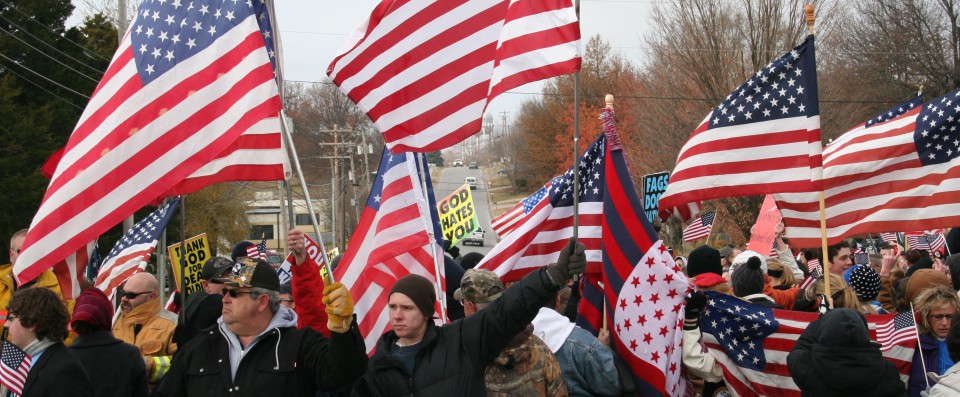Democratic Senator Claire McCaskill wasted no time coming out for Hillary Clinton. Her alacrity – she endorsed Clinton in June, declaring that “it’s important we start early” – suggested to some that she saw the writing on the wall when it came to 2016 and she was sure that it spelled “Hillary.” Naturally, so the story goes, McCaskill had some work to do to make nice with the candidate she dissed in 2008 in favor of Barack Obama, hence the early endorsement.
Nor, now that she is committed, is McCaskill a slacker in Clinton’s tightening primary fight against Bernie Sanders. Yesterday she attacked him in the New York Times as an unelectable extremist, declaring that “the Republicans won’t touch him because they can’t wait to run an ad with a hammer and sickle.”
Missouri’s other prominent Democrat, Governor Jay Nixon, also added his two cents to the Times account:
“Here in the heartland, we like our politicians in the mainstream, and he is not — he’s a socialist,” said Gov. Jay Nixon of Missouri, who is term-limited and working to elect a Democratic successor. “He’s entitled to his positions, and it’s a big-tent party, but as far as having him at the top of the ticket, it would be a meltdown all the way down the ballot.”
Heartland! Save me from all the cliches. Of course Democrats maintain a big tent. If we didn’t, neither Nixon nor McCaskill would be welcome. That’s something that the Sanders’ insurgency is making very clear.
Nevertheless, there is some evidence that McCaskill and Nixon may be right about, what else, Republican perceptions. Prominent Republicans like Party Chairman Rince Pribus and Carl Rove have lately seemed to be boosting Sanders’ candidacy. Why? To answer that question Steve Benen cites Claire McCaskill’s last Senate race:
In the larger context, the idea of partisans taking steps to choose their own opponent is hardly unprecedented. Perhaps the best recent example was the 2012 U.S. Senate race in Missouri, when Sen. Claire McCaskill (D) carefully and methodically helped boost then-Rep. Todd Akin (R) in his primary race, confident she could beat him in a general election. (She was right; McCaskill won by over 15 points.)
In today’s Washington Post, Greg Sargent suggests that there may be some truth to the arguments coming from both the Sanders and Clinton camps. While noting that “head-to-head general election polling right now is meaningless,” he says of Sanders:
… the political science tells us that perceptions of moderation in a candidate — as opposed to perceptions that a candidate is outside the mainstream — actually can make a difference. So does the history (see Goldwater, Barry, and McGovern, George). To be clear, I’m not saying Sanders could not overcome perceptions as out of the mainstream, if such perceptions do currently exist. He might be able to do that. It’s possible such perceptions might not form at all. But it’s also very possible that Republicans could successfully paint Sanders as an ideological outlier, and that this could matter. It’s not crazy, illegitimate, or out of bounds to raise these concerns.
Sargent then proceeds to point out that Clinton is also vulnerable to arguments about electability:
… The Sanders camp points out that only he can motivate younger and newer voters, as evidenced by what we’re seeing in the Democratic primary. The question of whether Clinton can motivate those voters is a very serious concern, one that has been raised by veteran Democratic pollsters such as Stan Greenberg, and one that really does call into question whether Clinton will be able to win in November. Meanwhile, to my knowledge the Clinton camp has not meaningfully addressed the fair point that she made similar “electability” arguments against Barack Obama in 2008, which turned out (obviously) to be very wrong.
Add the on-going GOP efforts, aided and abetted by mainstream media, to paint Clinton as untrustworthy and “unlikeable,” and you may have a real argument.
But maybe the anti-Sanders contingent is right. Maybe the only thing that will save the election for the Democrats is the primacy of one of the really ridiculous Republican candidates. Who knows? Elections are never certain, and while I understand the legitimate anxiety that prompts concerns about electability – the ugly GOP presidential line-up and the destructive nature of even the so-called moderates’ positions justify our worst fears – that is not the criteria that should determine one’s choice of candidate.
All I know is that I’ll support either candidate with my whole heart when the primary is over. I also know that I’ll be glad to see the back of Jay Nixon though I’ll have to hold my nose and vote for the pseudo-Democratic candidate, Attorney General Chris Koster. Same goes for that inestimable centrist, Claire McCaskill, if she runs again – although I don’t think that the powers that be can guarantee her the gift of another Todd Akin.

Can they spell “cabinet”?
Oho!